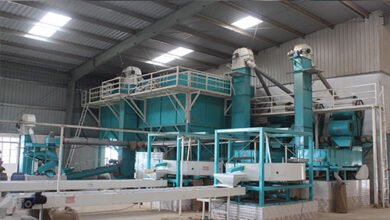
Balancing Risk and Reward: The Role of Value-Based Management in Saudi Investment
Introduction of Value-Based Management
In an ever-evolving economic landscape, Saudi Arabia is gaining recognition as a global investment hub. With its ambitious Vision 2030 plan, the Kingdom is working towards diversifying its economy, reducing its dependency on oil revenues, and welcoming international investors. In this transformation, the Role of Value-based Management in Saudi Investment has become increasingly significant.
Understanding The Role of Value-Based Management
Value-Based Management (VBM) is an approach that aligns a company’s strategies and decisions with the goal of maximizing shareholder value. In the context of Saudi investment, VBM provides a framework to balance risk and reward effectively. It ensures that investment choices contribute to long-term value creation and align with broader economic goals.
Balancing Risk and Reward
- Risk Assessment: VBM begins with a thorough evaluation of investment opportunities. This involves a rigorous analysis of potential risks, both internal and external, and their impact on the investment’s expected returns.
- Strategic Alignment: VBM emphasizes aligning investment decisions with a company’s overall strategy. In Saudi Arabia, this means ensuring that investments align with the goals of Vision 2030, whether they relate to technology, infrastructure, or sustainability.
- Performance Measurement: To balance risk and reward, Saudi investors need to establish key performance indicators (KPIs) and track them diligently. VBM allows for the continuous monitoring of investment performance and the assessment of whether the expected returns are materializing.
- Capital Allocation: A critical aspect of VBM is the allocation of capital. By optimizing the allocation of funds to various projects, Saudi investors can mitigate risks and enhance overall returns.
- Risk Mitigation: Effective risk management strategies, such as diversification and hedging, play a pivotal role in Saudi investment. VBM provides a structured framework for identifying and mitigating risks.
Realizing Long-Term Value
Saudi investment is not just about achieving short-term gains but also about creating long-term economic value. VBM encourages investors to look beyond immediate profits and consider the broader impact of their investments on the Kingdom’s economy.
- Sustainable Investments: VBM aligns with the growing interest in Environmental, Social, and Governance (ESG) investments. Saudi investors are increasingly seeking opportunities that promote sustainability and ethical business practices.
- Strategic Partnerships: The Kingdom has been actively fostering partnerships with global corporations. VBM helps Saudi businesses negotiate strategic partnerships that are aligned with the nation’s economic vision.
- Innovation and Technology: Vision 2030 places a strong emphasis on innovation and technology. Saudi investors leveraging VBM are more likely to support initiatives that drive technological advancements.
- Market Resilience: VBM enables Saudi investors to make choices that are more resilient to market fluctuations. It encourages diversification and a balanced portfolio that can withstand economic volatility.
Conclusion
The role of Value-Based Management in Saudi investment cannot be overstated. It provides a structured framework for balancing risk and reward while contributing to the long-term vision of Saudi Arabia’s economic transformation. As the Kingdom continues to attract global investors, the adoption of VBM principles will be instrumental in making Saudi Investment a robust and value-driven force on the world stage. Balancing risk and reward, with a keen eye on sustainable growth, is the way forward for Saudi investment in the Vision 2030 era.




